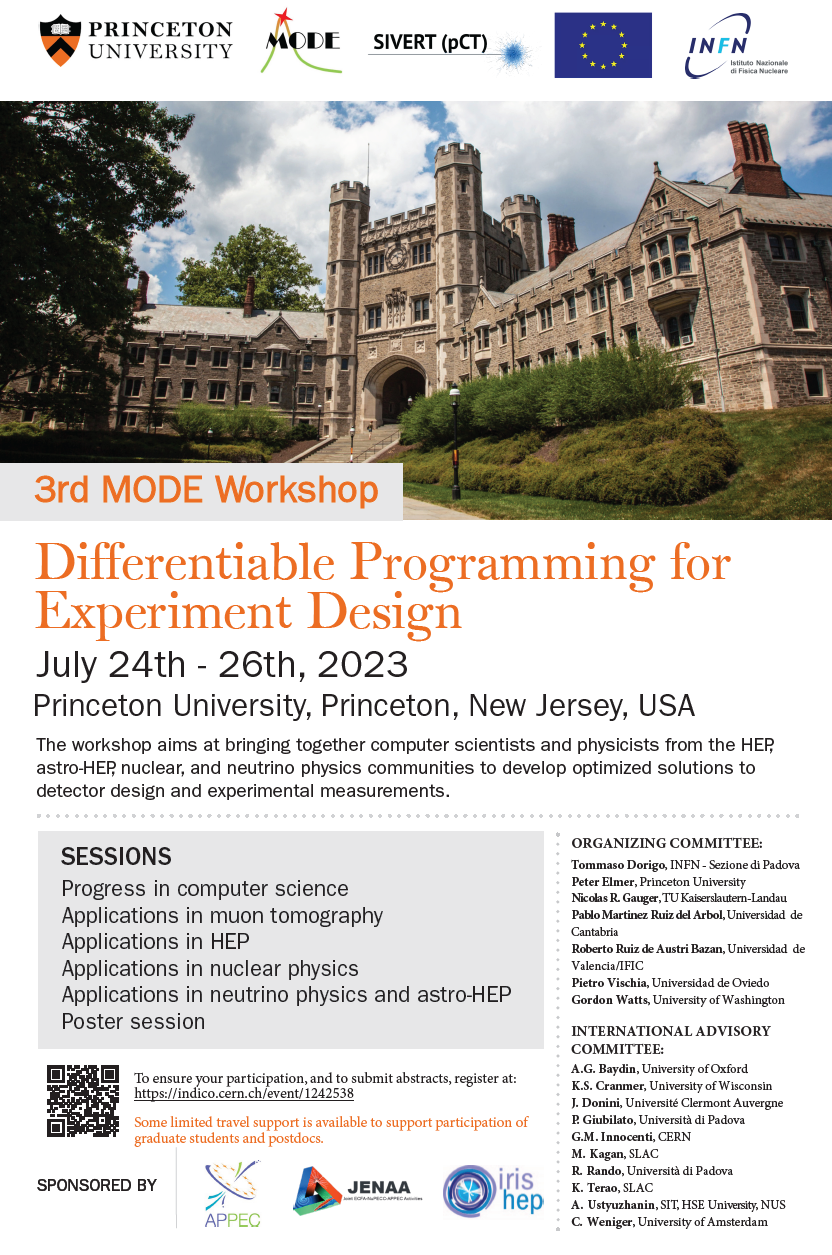
The MODE collaboration (https://mode-collaboration.github.io) was founded in 2020 when with a few colleagues we realized two things. On one side, in recent years there has been a development of the technical tools that in principle allow one to attack the problem of finding the optimal configuration of the hardware we use for experiments in particle physics and related areas, when "optimal" can truly be considered as an exact characterisation - i.e., the full alignment of the design choices with the supposed goals of the endeavor. On the other side, we observed how some paradigms in experiment design continue to be followed for future detectors that will take data in 10, 20 years from now, without accounting for the existing possibilities of exploring alternatives, as well as for the future capabilities in the use of the data those detectors will generate when operational.
Overcoming those paradigms may be extremely challenging, but we have to start the journey. So we started studying small-scale detector and tasks, with the purpose of trying our hands and building experience on how to solve their specific end-to-end optimization tasks. Eventually, we will be prepared to tackle the grander challenge of a full-fledged optimization for a large experiment.
The workshop will be the place where to discuss recent advancements not only in the specific field of experiment optimization, but more broadly of techniques that can be used also for that task, regardless of the target application they are being developed for at the moment. Differentiable programming is the common denominator of these activities, but of course optimization may also need to rely on non differentiable models and tools. So, the workshop will be a good source for becoming up-to-speed with the state of the art of machine learning applications for fundamental science.
We foresee sessions in computer science, as well as in different areas of research that have as a common denominator the use of particle detectors. Registrations and abstract submissions are open at the workshop site. I hope I will meet many of you in Princeton in July!




Comments